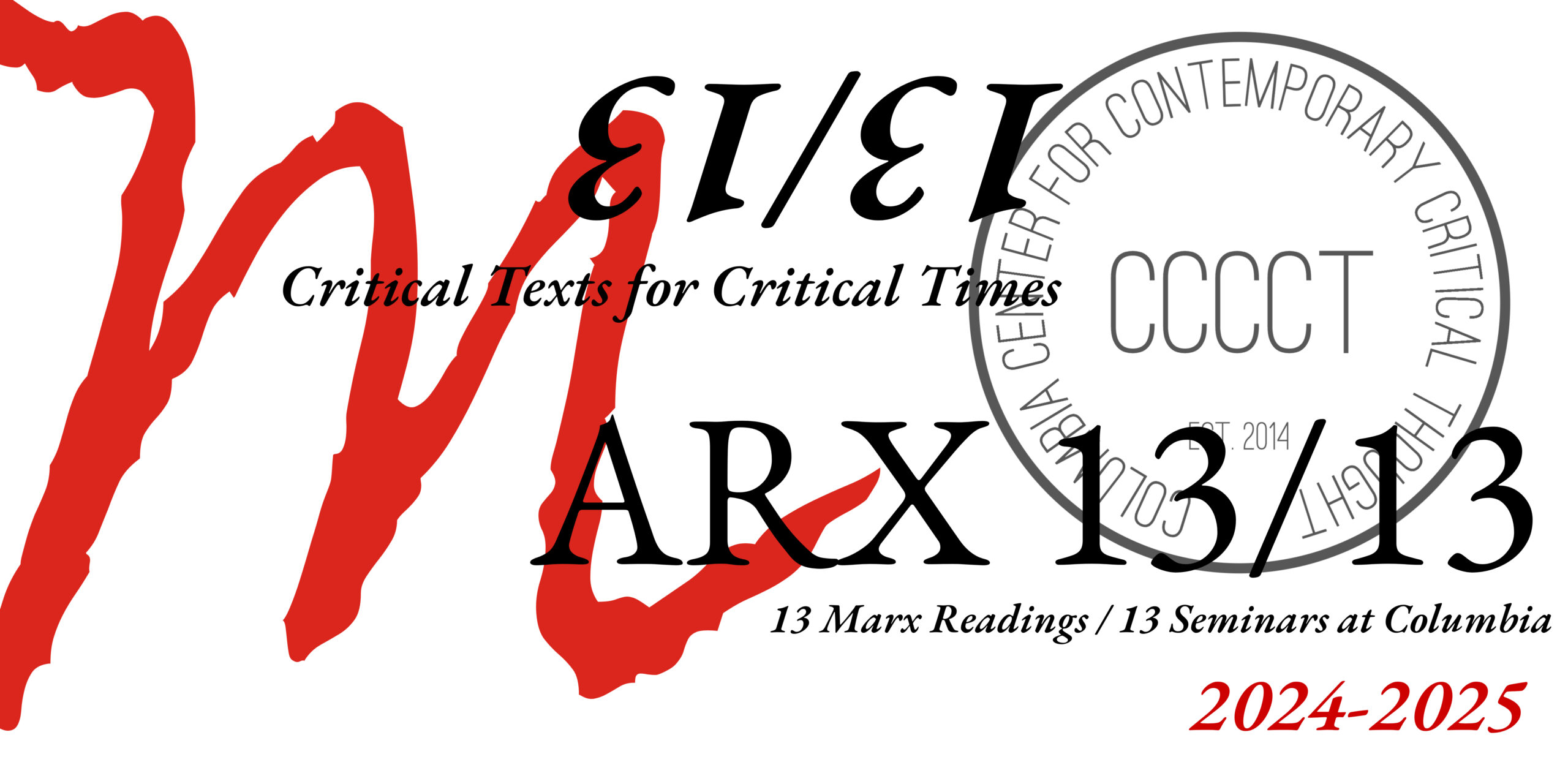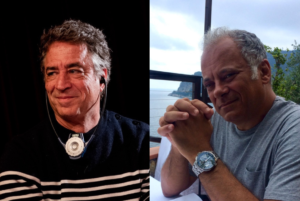Watch the full-length introduction to Marx 9/13:
Watch the Marx 9/13 Seminar:
The philosophers Michael Hardt and Sandro Mezzadra read and discuss
Marx’s Grundrisse and Antonio Negri’s Marx Beyond Marx, and Marx in Movement
Wednesday, March 5, 2025
Columbia University, New York, 10027
The Grundrisse, a hefty volume running about a thousand pages long, has become the urtext for those readers of Marx who have sought to infuse the more scientific and economistic later Marx of the Capital with the earlier philosophical, political, and social theoretic Marx of the 1840s. For these readers, it serves as the final bridge to Capital. It still contains traces of the early philosophical theory of alienation from the Paris manuscripts and in fact hints at how those ideas are transformed into questions of fetishism. It still retains a conversation with Hegel, this time with his Science of Logic. Marx emphasizes the centrality of social relations, in other words of social theory, in all the economic categories that he develops—money, value, capital. Marx speaks to the subjectivities of the workers, he discusses their consciousness of self, of “being for another” and “being for self.” Marx emphasizes the conflict and struggle between capital and the workers. “The biggest exchange process,” Marx writes, “is not that between commodities, but that between commodities and labor.”
To which Toni Negri exclaims, “boom! The first big leap, the first of the political excursuses of the Grundrisse.”
At Marx 9/13, Michael Hardt and Sandro Mezzadra will highlight the political reading of the Grundrisse, drawing on the work of Toni Negri, from his lectures on the Grundrisse from 1978 published under the title Marx Beyond Marx: Lessons on the Grundrisse. In that work, Negri meticulously demonstrates how the Grundrisse operates as a praxis-oriented manual to guide revolutionary action. Negri shows how, in his words, “the revolutionary subject emerges from the relation with capital” through a process that makes possible the “auto-determination of the subject” that can then modify the processes of capitalism.
For this session, we are privileged to welcome Michael Hardt and Sandro Mezzadra, who themselves collaborated closely with Negri for decades. Notably, in Toni Negri’s book Marx in Movement, Negri traces the different phases of the workerist movement and its development, from its origins in the 1960s, through the work on social reproduction and the wages for housework movement of the 1970s, beyond the European focus in the 1980s, to the third phase in the 1990s with the birth of neoliberalism and financial mediations in post-Fordism. Negri concludes with the seminal work of our two guests: “And then there were the studies of Michael Hardt, Sandro Mezzadra and Brett Neilson on global migration and the international dimension of the class struggle.”
Welcome to Marx 9/13!

Pravoslav Sovák, “Ironworks—Panorama” (1959)

